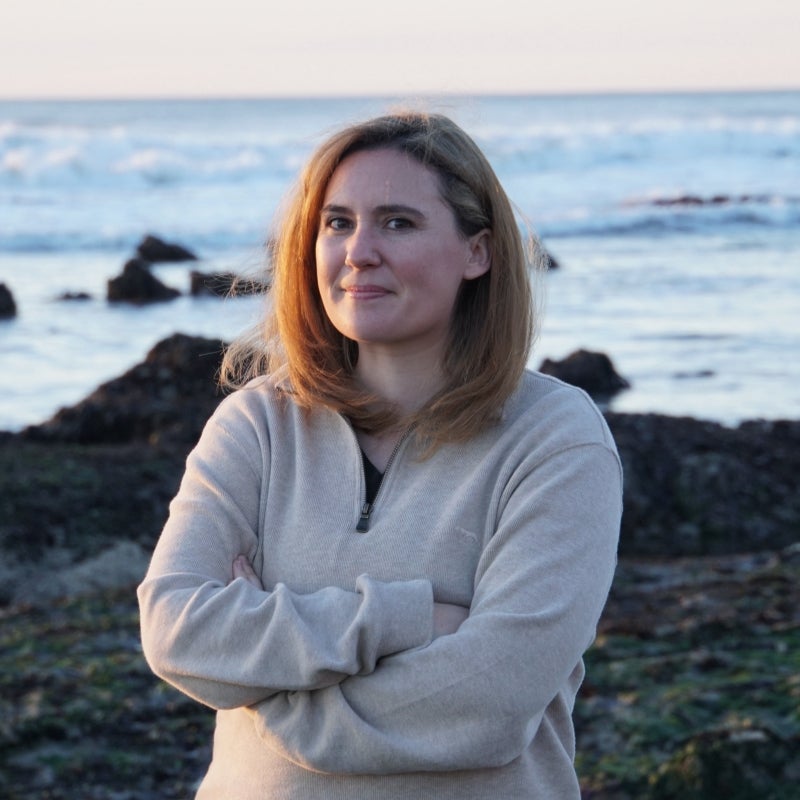Viscoelastic fluids are crucial across diverse industries, including food science, automotive paints, and 3D printing. They exhibit complex non-Newtonian behaviors, presenting unique industrial challenges. In this seminar, I will discuss new methods to quantify two strongly non-linear physical properties of viscoelastic fluids: normal stress differences and extensional thickening.
First, I will present a new technique for measuring normal stresses in viscoelastic fluids, overcoming low-shear rate limitations of traditional rheometers. This method involves using a small, submerged, untethered swimming robot (Kroo, Binagia, Eckman, Prakash and Shaqfeh. Journal of Fluid Mechanics, 2022), for measuring normal stress coefficients with enhanced resolution and without removing fluids from their natural environment. The swimmer comprises two unequally-sized spheres connected by a shaft which drives a constant relative rotation rate between the two spheres (a constant “twisting” motion). In a Newtonian fluid such as oil or water at low Reynolds number (Re), the swimmer does not propel. However, in a viscoelastic fluid at low Re, the swimmer propels forward. From this forward propulsion speed, we were able to measure the primary normal stress coefficient down to ~1 Pa s^2 accuracy in a polyacrylamide Boger fluid, demonstrating a portable and torque-free “swimming rheometer” experimentally for the first time.
Second, I will discuss the phenomenon of "extensional thickening" in polymeric fluids, where molecular conformational changes in very strong flows result in significant, transient “stiffening” of the fluid. I will extend and refine the idea of exponential shear from the 1980s (Doshi & Dealy. Journal of Rheology, 1987), in which a shear protocol was designed to kinematically match the stretch and stretch rates of a material element in a steady extensional flow. We will expand upon this theory of exponential shear, and then extend it to a periodic version (Kroo, Underhill and McKinley. Proc. XIXth ICR Athens, 2023). We call this periodic method “Composite-Harmonic Exponential Waveforms” (or CHEW). We use CHEW to probe the cyclic tensile dynamics of a variety of viscoelastic fluids in time, analogous to cyclic tensile fatigue tests in solid mechanics. I will compare results from Newtonian fluids, a polymeric fluid and lastly a damage-sensitive, adaptive, multiphase fluid.
These methodologies enhance our ability to quantify non-Newtonian mechanical properties of viscoelastic fluids, paving the way for improved process control and design in numerous industrial applications.

Dr. Laurel A. Kroo is a postdoctoral scholar in MIT's Non-Newtonian Fluids Lab, and received her Ph.D. from Stanford University in 2022. Her research focuses on non-Newtonian fluids like polymers, colloids and foams. Specifically, Dr. Kroo investigates the nonlinearities of complex fluids to construct non-biological adaptive systems — such as a small robot that reports fluid elasticity via observations of its swimming speed (Kroo et al. Journal of Fluid Mechanics 2022) or a self-assembling foam material driven by internal activity (Kroo et al. Soft Matter 2023). At MIT, she is currently investigating a novel experimental method to probe extensional thickening in viscoelastic fluids. In addition to her more fundamental scientific work, Dr. Kroo has also been involved with several more applied projects focused on global equity/inclusion, such as the Foldscope Project (Prakash, Cybulski and Kroo, Patent US9810892B2) and a Covid-19 reusable-mask project, termed “Pneumask”, which protected 30,000+ healthcare workers in 2020 (Kroo et al. PLOSone 2021). Her most recent recognitions include an awardee for the 2023 Berkeley MechE Rising Stars program, a 2023 Rowland Fellows finalist at Harvard and the 2022 Caltech Young Investigator Lectureship in the MCE department. Dr. Kroo holds numerous patents/patent applications, and previously worked/interned extensively as an engineer in the industry, including at NASA, Apple, and several start ups.

